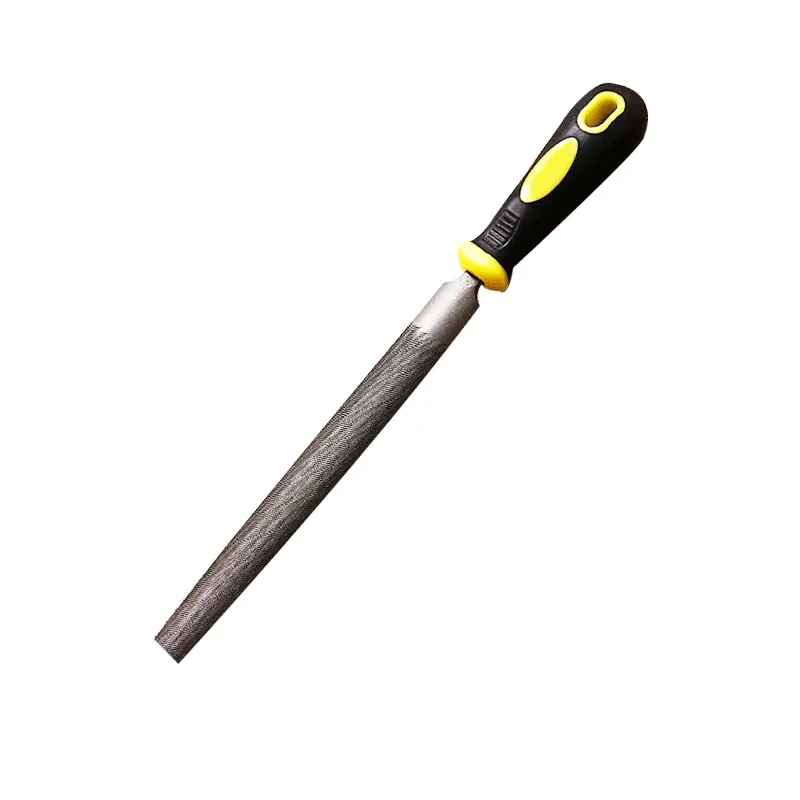Diamond Steel File for Hardened Steel: A Precision Machining Tool
In the field of metal processing, hardened steel is widely used in the manufacturing of various components with extremely high requirements for wear resistance and durability, such as molds, cutting tools, and key aerospace components, due to its high strength and hardness. However, processing hardened steel is not an easy task, and ordinary files are often unable to handle it. diamond ígwè faịlụs, on the other hand, have become an ideal choice for processing hardened steel due to their excellent performance.

The Unique Material and Advantages of Diamond Steel File for Hardened Steels
The unique feature of diamond ígwè faịlụs is that their surface is embedded with a layer of artificial diamond particles. Diamond is the hardest substance in nature, with a Mohs hardness of 10, which gives diamond ígwè faịlụs unparalleled cutting ability. Compared with traditional files, diamond ígwè faịlụs have significant advantages in processing hardened steel. Firstly, it can easily cut hardened steel, greatly improving machining efficiency.
Traditional files often require a lot of time and effort when facing hardened steel, and the cutting effect is poor; diamond ígwè faịlụs can quickly remove materials and reduce processing cycles. Secondly, diamond has extremely strong wear resistance, which makes the service life of diamond ígwè faịlụs much longer than ordinary files. During the long-term processing of hardened steel, the teeth of ordinary files are prone to wear, leading to a decrease in cutting performance and requiring frequent replacement; The diamond particles of diamond ígwè faịlụs can maintain their sharpness for a long time, reducing the frequency of tool replacement and lowering processing costs.
Working Principle of Diamond Steel File for Hardened Steel
The working principle of diamond ígwè faịlụs is based on the ultra-high hardness and sharp edges of diamond particles. When the file moves on the surface of hardened steel, diamond particles act like countless tiny and sharp cutting tools, cutting into the surface of hardened steel and scraping the material off bit by bit. Due to the much higher hardness of diamond compared to hardened steel, it can effectively process hardened steel without damaging itself.
Meanwhile, the distribution density and size of diamond particles also affect the cutting performance of the file. Generally speaking, the denser and larger the particle distribution, the stronger the cutting force of the file, which is suitable for quickly removing a large amount of material; Files with sparse particle distribution and smaller particles are more suitable for fine processing and can obtain smoother surfaces.
Kekọrịta
-
Lithium Battery Welding Machine | High-Precision, Fast, SafeAkụkọNov.17,2025
-
Aluminium Guide Roller | Anodized, Lightweight, Low-NoiseAkụkọNov.17,2025
-
Tofu Cat Litter Bulk – Eco, Low-Dust, Fast Clumping SupplyAkụkọNov.17,2025
-
Equipment for Lithium Cell Assembly | Automated & PreciseAkụkọNov.10,2025
-
Square File Tool – Precision Cut, Hardened Steel, VersatileAkụkọNov.10,2025
-
Lithium Ion Battery Assembly Machine | Automated, High-SpeedAkụkọNov.10,2025







